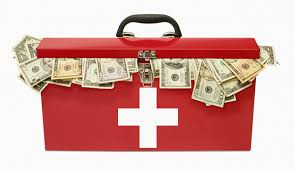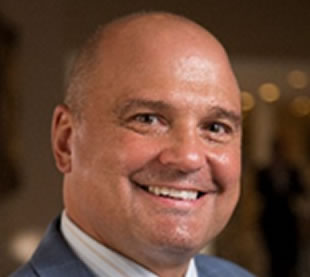
Half Of Americans Are Unprepared For A Financial Emergency, Are You?
According to a recent Gallup Poll, about half of Americans believe they do not have enough money on hand to “make a major purchase, such as a car, appliance or furniture, or pay for a significant home repair” if they needed to. As expected, individuals with higher income were more likely to be prepared for a sudden financial need, but even so, 16% of households with an annual income of $240,000 a year or more said they wouldn’t be able to handle a financial emergency
Though these are shocking results, they are not news. Gallup asked the same question in 2011, and similarly, only 50% of the polled participants said that they could handle a financial emergency. In this 2016 Poll, Gallup took their line of questioning a step further and asked if the participants had enough money to “make ends meet on a daily basis.” The Poll found that only about seven out of ten Americans have “enough money to buy the things they need” on a daily basis. These findings raise a variety of questions – from “Is this accurate?” to “How much money should I have?” From my experience, I can tell you that these findings are accurate and need to be addressed. To help guide your train of thought, I’ve included my breakdown on these statistics below.
How did this happen?
For years, the middle class has been squeezed by declining wages, underemployment, and other factors such as rising health care costs. For many, saving really is difficult. For others, it’s a choice. When faced with a choice of enjoying life now or depriving oneself of immediate gratification by saving money, people often choose to spend and enjoy now.
Previous generations who experienced the Great Depression or who had parents who lived through those tough times had a mindset that propelled them to save for a rainy day. They knew – or heard, ad nauseam – about how tough it was growing up in the Depression or during World War II. These days, those lessons have faded and even people struggling to be middle class feel entitled to spend when they find a few extra dollars.
What can I do?
This problem is substantial from both a societal and an individual standpoint. For you, the first step is to gain an understanding of your approach to savings and commit to changing your thought process and actions going forward. You will need to save a sizeable portion of income to create a nest egg for future emergencies and this requires a firm commitment.
Once a commitment is made, you should create a written financial plan specific to you. I’ve written in previous articles about setting goals, understanding your cash flow, and “knowing your number.” These are critical steps in creating a written financial plan and figuring out how much money you may need to save not only for retirement but also how much you should have on hand for a sudden financial need. There is not a magic number that works for everyone – you will need to take the time to consider and write down your potential financial emergencies. If writing down your goals and completing a budget is too challenging, then enlist help from a professional.
After you determine the amount of money you may need on hand, you should try to save each month regardless of circumstances that arise. I suggest that you pay yourself first with an automatic contribution into a savings or checking account. Then, set aside a portion of this for emergencies and keep a portion for your longer term goals such as retirement.
Overall, you need to strike a balance between living a fun life and recognizing the realities that today or tomorrow may bring. We must acknowledge the gravity of these findings and commit to changing our attitude towards savings, so that in 2021 when this Poll is conducted again, a significant majority of Americans will have adequate cash on hand for an emergency or major purchase.
Mark Avallone, MBA, CFP®, CRPS®. www.PotomacWealth.com
Securities and Investment Advisory Services offered through H.Beck, Inc., Member FINRA/SIPC. 6600 Rockledge Drive, 6th Floor, Bethesda, MD 20817 301.468.0100. Potomac Wealth Advisors, LLC is not affiliated with H.Beck, Inc.
This material represents an assessment of the market environment at a specific point in time and is not intended to be a forecast of future events, or a guarantee of future results. This information should not be relied upon by the reader as research or investment advice regarding any funds or stocks in particular, nor should it be construed as a recommendation to purchase or sell a security. Past performance is no guarantee of future results. Investments will fluctuate and when redeemed may be worth more or less than when originally invested. Diversification and asset allocation do not guarantee against loss. They are methods used to manage risk.
* Opinions expressed are subject to change without notice and are not intended as investment advice or to predict future performance.
*The economic forecasts set forth in the presentation may not develop as predicted and there can be no guarantee that strategies promoted will be successful.
* Consult your financial professional before making any investment decision.



Engage us on Facebook
Follow us on Twitter
Tweets by @mymcmedia